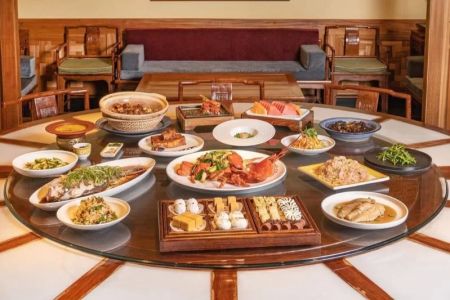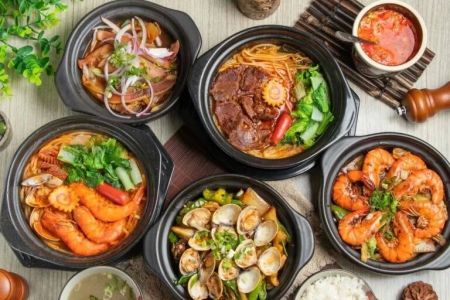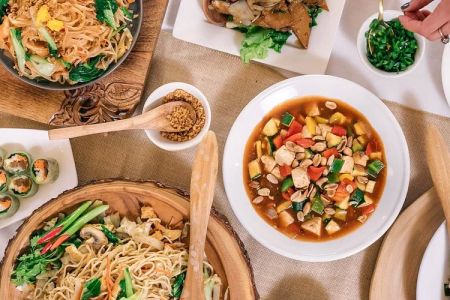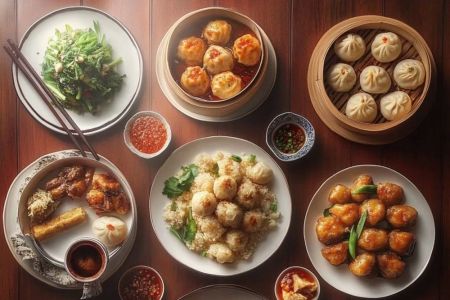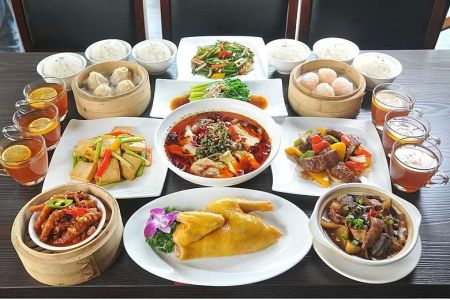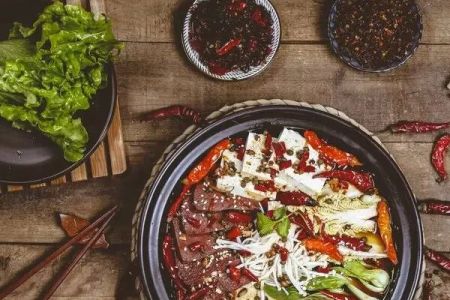Exploring Different Types of Chinese Dumplings
For as long as I can remember, dumplings have been a staple in my kitchen. Growing up, I was fortunate enough to have a mother who made dumplings from scratch. The soft dough, filled with various savory fillings, was always something I looked forward to. Over the years, I’ve come to appreciate the variety of Chinese dumplings, each type offering a unique combination of flavors, textures, and traditions. From the steamy, pillowy baozi to the crispy, golden potstickers, the world of Chinese dumplings is vast and delicious. It’s an experience that goes beyond just food—it’s an experience that connects me to my culture and provides a comfort that words can’t fully describe.
In this article, I’ll take you through a deep dive into the different types of Chinese dumplings, each with its own history, fillings, and preparation methods. Whether you’re a seasoned dumpling connoisseur or a newcomer to Chinese cuisine, exploring these varieties will surely add excitement to your next meal.
1. Jiaozi: The Classic Dumpling
One of the first dumplings I ever learned to make with my mother was jiaozi. These are perhaps the most well-known type of Chinese dumplings, often served during Chinese New Year celebrations. Jiaozi are typically made with a simple dough, filled with ground meat (often pork or beef) and vegetables like cabbage or chives. The dumplings can be boiled, steamed, or pan-fried, depending on the desired texture.
What makes jiaozi so special is their versatility. The fillings can be tailored to personal preferences, making them a favorite for gatherings. I’ve always enjoyed experimenting with different fillings—sometimes adding mushrooms for an earthy depth, or swapping in shrimp for a lighter, seafood twist. The dumplings are usually served with a tangy soy-based dipping sauce, which perfectly complements the savory filling and the soft yet chewy dough.
2. Baozi: Steamed Buns of Delight
If you’re looking for a softer, pillowy dumpling, baozi might be the one for you. Baozi are steamed buns filled with various meats, vegetables, or sweet fillings, and they are known for their fluffy, slightly sweet dough. Unlike jiaozi, which are often pleated at the top, baozi are rounded, with a smooth surface and a more substantial filling inside. Traditionally, baozi is filled with pork and cabbage, but over time, I’ve come across many variations, including ones filled with red bean paste or sweet taro.
What I love most about baozi is how they’re a meal in themselves. The soft, steamed dough gives way to the flavorful filling, and the light, airy texture makes them incredibly comforting. I often make baozi on weekends when I want a warm, hearty breakfast. Pairing them with a cup of hot tea is the perfect way to start the day.
3. Potstickers: Crispy and Savory
While jiaozi are boiled or steamed, potstickers offer a delightful crispy contrast. Potstickers are pan-fried dumplings that start off with a seared, crispy bottom and are then steamed to cook the filling. The result is a golden, crispy exterior with a soft, juicy interior. Potstickers are often filled with pork, cabbage, or chives, but I’ve also enjoyed versions filled with beef or even chicken.
For me, potstickers hold a special place in my heart. They remind me of family dinners, where we’d gather around the table to share stories while dipping these crispy delights into soy sauce or a chili-based dipping sauce. The texture of potstickers, with their crispy base and tender filling, is what makes them so addictive. I’ve found that they’re often the first to disappear at any dinner gathering.
4. Xiaolongbao: Soup Dumplings
If you’ve ever had xiaolongbao, you know that these dumplings are unlike any other. Known as soup dumplings, xiaolongbao are filled with a delicious, savory broth that spills out when you take a bite. The dough is thinner than that of other dumplings, and the filling usually consists of a combination of minced pork and gelatinized broth, which turns to soup when steamed. These dumplings are typically served in bamboo steamers, and their delicate texture requires a bit of finesse to make.
The first time I tried xiaolongbao, I was amazed by the burst of hot soup that spilled out with the first bite. The combination of the savory broth and tender pork is an explosion of flavor in your mouth. I’ve found that the best way to eat them is by gently lifting one with your chopsticks, placing it on a spoon, and letting it cool slightly before taking a careful bite. It’s an experience that combines the joy of dumplings with the comfort of soup, making xiaolongbao one of my all-time favorite dumplings.
5. Shui Jiao: The Water Dumpling
While jiaozi are often boiled or steamed, shui jiao refers specifically to boiled dumplings, and they’re one of the most traditional types of Chinese dumplings. I love shui jiao for their simplicity. The dough is slightly thicker than jiaozi, and the filling can be anything from pork to shrimp to vegetables. What makes shui jiao stand out is the gentle boil, which results in a tender, juicy dumpling that’s perfect for dipping in a spicy soy-based sauce or a mix of vinegar and chili oil.
Growing up, we’d often have shui jiao during the colder months. The warmth of the boiled dumplings paired with the tangy sauce created the perfect balance of flavors. I’ve found that these dumplings work best when served as part of a larger meal, accompanied by noodles or stir-fried vegetables, making them the ultimate comfort food.
6. Jiaozi Variations: Regional Specialties
One of the things I’ve come to love about Chinese dumplings is the regional variations. Different areas of China have their own unique takes on dumplings, each offering something special. For example, northern China is known for its thick-skinned dumplings, while in the southern regions, dumplings tend to have thinner skins and more delicate fillings.
In places like Beijing, jiaozi are often filled with lamb and cabbage, while in the south, I’ve encountered more seafood-based dumplings with shrimp and scallions. I once had a memorable experience in Xi’an, where I tried dumplings stuffed with lamb and cumin, giving them a bold and flavorful twist. The beauty of Chinese dumplings is that they can be customized with so many ingredients, making them adaptable to different tastes and preferences.
Conclusion: Embrace the Variety of Chinese Dumplings
Exploring the different types of Chinese dumplings has been a delightful journey for me, full of flavors, textures, and culinary discoveries. From the soft baozi to the crispy potstickers, each type of dumpling offers something unique and delicious. I encourage you to dive into this world of flavors and try making or tasting as many variations as you can. Whether you’re making them at home or visiting a local restaurant, Chinese dumplings are an unforgettable experience that brings people together over a shared love of food. So, the next time you’re in the mood for something comforting and satisfying, why not explore the wide variety of Chinese dumplings available?
If you’re looking for the best Chinese dumplings or the right ingredients to make them at home, check out Chinese Food for a wide selection of products and services tailored to your needs.


